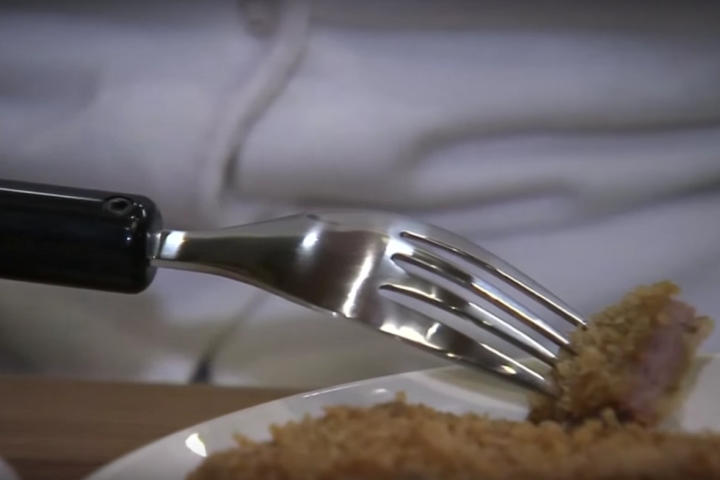
The prototype fork, developed by Hiromi Nakamura of Rekimoto Lab at the University of Tokyo, comprises a handle that houses a rechargeable battery and electric circuit, according to Nikkei Technology. When a user places the head of the fork on their tongue, they can press a button on the handle to deliver one of three levels of electric current, which replicates varying degrees of saltiness.
Spices like pepper and garlic help the fork to deliver saltiness rather than sour and metallic tastes, according to Nikkei Technology.
“When I increased current level by using a rotary switch on the back of the fork, a metallic taste started to become stronger than the salty taste,” wrote the online publication’s reporter, who was eating salt-free tonkatsu (pork cutlet). “On the other hand, it is reportedly difficult to emphasize a sweet taste or juicy flavor.”
The prototype fork, which is not waterproof, was created for less than $18, not accounting for the cost of the fork. The device’s rechargeable battery lasts six hours per charge.
This isn’t the first time Nakamura has shown how electricity can simulate saltiness and sweetness: In 2012, she showed off the application of electricity to affect tastes at the Computer Human Interaction Conference in Austin, Texas, and brought an earlier version of the “electric flavoring fork” there. The latest iteration is less unwieldy than a prototype shown earlier this year and is the result of six years of development.



